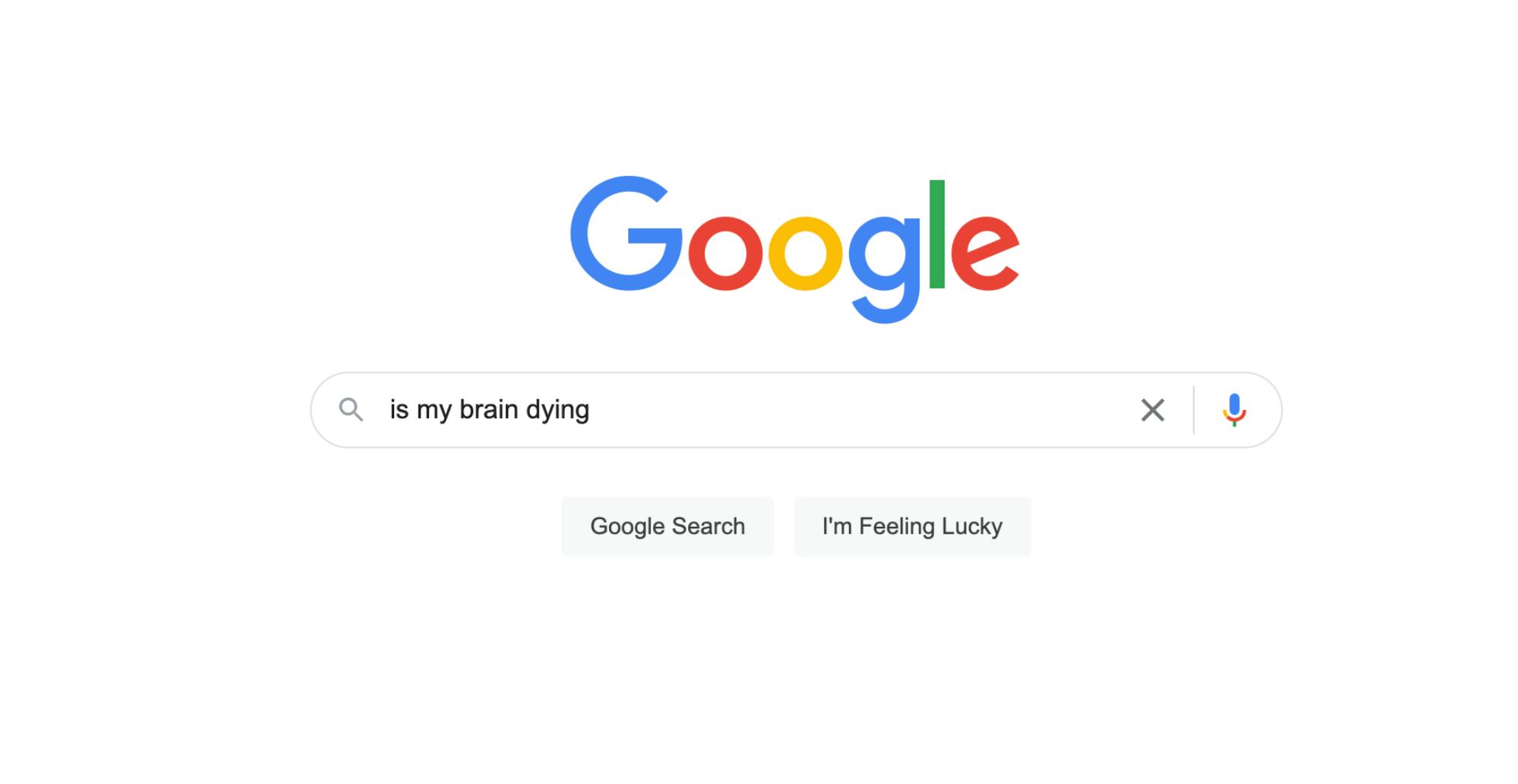Symptoms of burnout: How to recognise them and recover
author
Josie Adams
published
Oct 30, 2023
categories
Article
read time
3 mins
.png?ixlib=gatsbyFP&auto=compress%2Cformat&fit=max&rect=0%2C0%2C1999%2C1033&w=1999&h=1033)
Do you think you might have burnout? Here are some common signs, and ways to recover.
The breakdown:
1. What is burnout?
2. What are burnout symptoms?
3. How do I heal burnout?
4. Ask for help
5. Burn out books
- 1. What is burnout?
- 2. What are burnout symptoms?
- 3. How do I heal burnout?
- 4. Ask for help
- 5. Burn out books
share this post
It’s no surprise so many of us are feeling the burn: we’re working longer hours; we’re three years into a pandemic that’s caused illness, loss, and the rise of family-fracturing conspiracy theories; and there just doesn’t seem to be any good news.
Burnout is on the rise.
Broad estimates say between 4 and 7% of workers in the US could experience occupational burnout – but some are more likely to be hit with the soulsucking stick than others. Nurses, teachers, and emergency responders face some of the highest rates of burnout.
Unfortunately, not all of us can resign; we have bills to pay and families to feed. Taking six months off work to find our inner serenity is impossible.
But you don’t have to burn just because the world is. We’re not doctors, but we have some ideas about how you can put some ice on those work burns – without quitting.
What is burnout?
It’s chronic stress. Instead of regular stress, such as you might experience if a train is hurtling toward you, this is a lower-level stress that sticks around instead of fading after an hour or two.
Burnout occurs when the stress you’ve been feeling begins to take a long-term physical and mental toll: fatigue, disconnection, brain fog, a lack of passion. According to some experts, it might actually be depression.
And it’s not limited to your work life; if you’re burnt out, your personal life will be just as desolate.
What are burnout symptoms?
There are many signs of burnout, and asking what the symptoms are is probably one of them!
You’re emotionally exhausted. This can look like taking things to heart too much – for example, crying over a bad coffee – or it can look like total numbness. No matter how much criticism or praise you receive, your emotional state remains cold. The heats of passion, joy, and even anger at work are all gone.
You might have difficulty concentrating, sleeping, and remembering.
You’re not as productive at work – some might call it cruising, but you feel anything but cruisy. Even achieving the bare minimum can feel like a slog. You just don’t have the energy you once did.
Perhaps you’ve been keeping up with production, but you’ve lost all sense of pride in your work.

You might feel lonely or isolated – you’ve stopped feeling close with your colleagues, and even your friends or family.
Burnout is physical, too. You can experience headaches, sore muscles, heart palpitations. You might start drinking or smoking more to alleviate the stress, leading to further health conditions down the line and increased stress thinking about them, too.
How do I heal burnout?
There’s no quick fix. Estimates for how long it takes to physically and mentally recover from burnout range from 11 weeks through to several years.
The first step is admitting you have it. You’re not just going through a bad patch. You are trying hard enough. Once you recognise the burnout symptoms for what they are, you can take a minute to plan the healing process.
First, take time off. You can keep working with burnout if you have a whole handbook of coping strategies, but you won’t be able to start healing unless you actually take some time off work to reset.
It doesn’t have to be a month; even just two days will make a difference. During this time you can take steps to set yourself up for healing.
Identify what’s causing burnout
What are the main things burning you out: is it a person you work with? Is it the turnaround time of tasks? Do you face pressure from the public? It could even be the commute you take.
Keeping a journal is one way to identify what’s impacting your mood; another option is using a tracking gadget to measure your stress responses. When your heart rate shoots up, something’s pushed your buttons.
Look after yourself
Go for hot girl walks, drink bone broth, go to therapy, get a B-12 shot, try Wim-Hof breathing techniques; whatever appeals, do it. While wellness trends can be hit and miss, it can’t hurt to try.
Then there’s the tried-and-true self-care techniques: 20 minutes of light exercise, eating a vegetable, and saying “no” to more responsibilities. You need to get that atrophied brain all plump and juicy again before you can process more things.
Ask for help
Burnout is easier to manage with a support network. Start with your closest friends and family. Sometimes just verbally expressing what you’re feeling can kickstart the recovery process.
Ask your doctor for help. While burnout isn’t an official medical diagnosis, physical stress symptoms – headaches, increased blood pressure, hair falling out, bleeding gums, fainting – are within your doctor’s remit. And who knows, a note from the doctor might help with talking to your boss.

Asking your manager for help is hard, but it could make the biggest difference. You could arrange a smaller workload so you don’t have to work long hours. You could ask for a little more autonomy, or a raise if you’re brave enough. You could organize to work from home a couple of days a week.
Try talking to your colleagues, too – maybe some of them feel the same. There’s strength in numbers, and if you can identify some basic workload restructuring that makes life easier for everyone then all the better.
Burn out books
When you’re ready to put more info in your brain, there are books on burnout you can turn to. Here are a few of our faves:
- Unf*ck Your Brain by Faith G. Harper
A tough-love-meets-science approach to putting your brain back together.
- Can’t Even: How Millennials Became the Burnout Generation by Anne Helen Peterson
Peterson is one of the best writers Buzzfeed ever hired, and now she’s written a book.
- The Art of Saying No by Damon Zahariades
It is what it is: a guide to saying no, for all the pushovers out there.
share this post